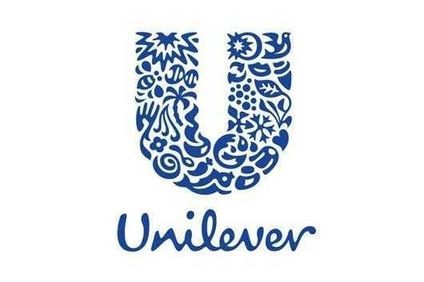
Unilever beat market expectations with a stellar third-quarter sales update this morning (15 October). However, with growth driven by its lower margin refreshments unit, could this put pressure on Unilever's group margin? Katy Askew reports.
Unilever reported a 5.7% rise in underlying sales today, well above consensus analyst expectations of 3.9%. Speaking during a conference call with analysts, CFO Graeme Pitkethly said the group's performance was lifted by some "specific factors" but also reflected a "steady improvement in growth momentum" underpinned by efforts to position the company for long-term expansion. "Our competitiveness has improved and after three quarters when our growth was no more than in line with out markets we are gaining share," he revealed.

Discover B2B Marketing That Performs
Combine business intelligence and editorial excellence to reach engaged professionals across 36 leading media platforms.
Expansion has been supported by a stronger innovation pipeline, the incoming finance chief reflected. "Our innovation is getting stronger…. more aligned behind category strategies."
In its food unit, Pitkethly said Unilever's priority is to "improve volume growth" while maintaining the "strong margin and cash flow" that the category generates. In the quarter, like-for-like food sales growth totalled 1.6%, with much of the expansion due to pricing. Volumes at the unit were up 0.4%. "This is an improvement on the flat sales we have delivered over the past few years but with still more to be done," Pitkethly observed.
The improved performance was supported by innovation. Savoury saw sales expansion in the "mid-single digits" with Knorr's natural 'meal makers', ready-to-eat soups and iron-fortified stocks in Africa singled out for special mention. Hellman's squeezy bottle was also rolled out in North America where the launch is "building nicely".
Meanwhile, in the problematic spreads business, the new, stand-alone baking, cooking and spreads unit is now "100% focused on executing its strategy", Pitkethly said. The company's focus on innovation, particularly around butter and oil blends, has enabled it to gain share in category that remains down. "We are gaining share within margarine in the developed markets but the market decline is continued, made worse by low dairy prices. We have made a big change to how we operate in spreads and 2015 will inevitably be a year of transition. The results from the new approach will need to be judged through 2016," Pitkethly said.

US Tariffs are shifting - will you react or anticipate?
Don’t let policy changes catch you off guard. Stay proactive with real-time data and expert analysis.
By GlobalDataElsewhere, Unilever reported a "strong" performance in refreshments. This business unit, which includes ice cream and tea, saw underlying sales increase 8.5% in the period thanks to higher ice cream sales. Here too, Pitkethly said sales were boosted by innovations including Magnum Pink and Black and Ben & Jerry's cores.
Unilever said the growth at refreshments was one of the key factors underpinning its group-wide sales gains. Other factors that lifted the performance included the lapping of destocking in China last year and forward purchasing in Latin America, which could dampen sales in the region in the fourth quarter.
"This was an excellent reporting," Sanford Bernstein analyst Andrew Wood wrote in an upbeat note to investors. "To cap it all off, full organic sales growth guidance was raised from 2-4% to the "upper-end" of the range. Given positive 3.8% year-to-date that should be achievable/beatable," he predicted.
The third-quarter sales beat triggered a jump in Unilever's share price of more than 4% in morning trade today. However, with a few one-off factors boosting the top line – and an increase in pressure from currency headwinds – could Unilever's margin outlook come under pressure?
Management reiterated its margin guidance for "a steady improvement in core operating margin and strong cash flow". While the company is unlikely to miss this somewhat generic guidance, it is also fair to say that the drivers of growth could slightly depress its margin and product mix profile.
Unilever has been working to expand its premium ice cream sales to build refreshment margins. Indeed, the company said its premium brands saw the fastest growth in the period. Nevertheless, with margin at the company's refreshment unit below that of the group average, a chunk of Unilever's growth can be attributed to a business that generates lower returns.
Currency exchange will also have an impact on Unilever's margin – despite the favourable effect of the euro's depreciation – because pricing is managed at a lower level and transitional currencies will weigh, Pitkethly revealed. However, he insisted Unilever is managing both the impact of product mix adjustments and foreign exchange.
"We are managing many different things as we look to close the year. There is no change to our guidance on margins. We expect to see a steady improvement. That is despite the increased headwinds we have with currency translation… We manage pricing on a local basis taking into account affordability and competitive dynamics etc. That means that in terms of current results, including the impact of currency exchange, we have to manage the business to do that. We have positive mix, we have negative mix… we think we can manage that."
As a result of these factors – and the "growth drag" represented by food's versus the higher growth refreshments, home and personal care units – Jefferies analyst Martin Deboo said he expects Unilever's margin performance to be "pedestrian by the standards of the sector" despite "resilient pricing and benign commodities".
When Unilever reports its full-year sales in January, attention will be focused on whether the group has maintained its top line momentum and, significantly, whether these gains have translated to the bottom line.





